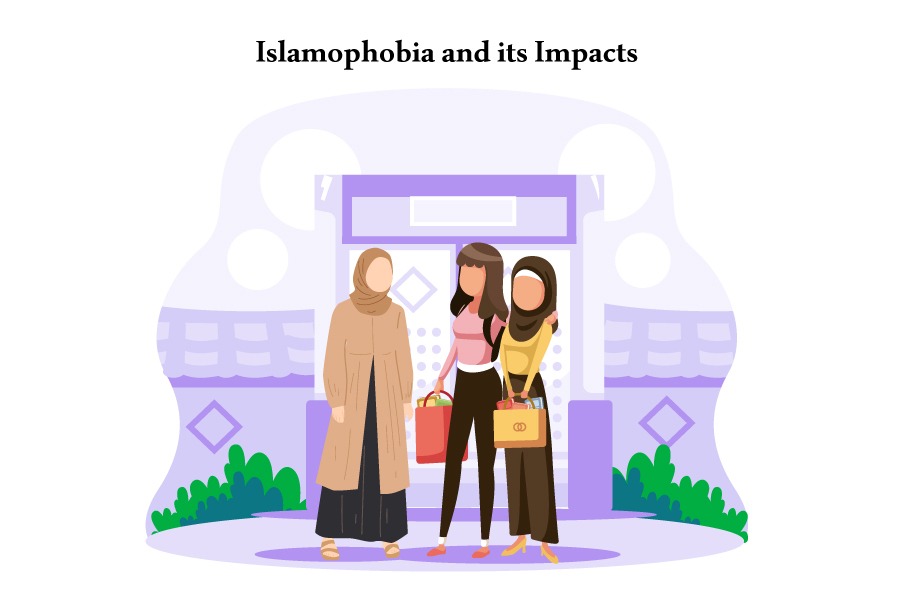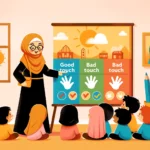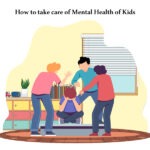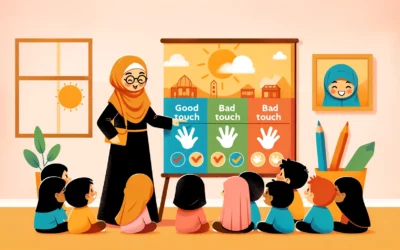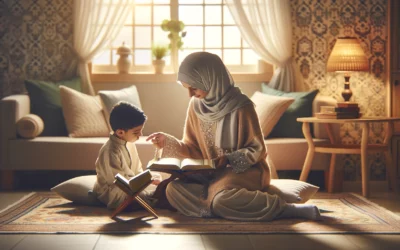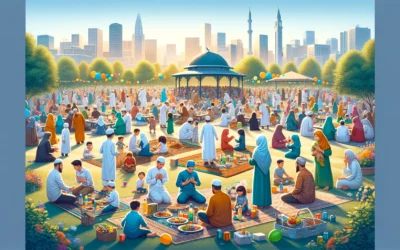Introduction:
What is Islamophobia?
Islamophobia represents the unwarranted fear, hatred, or bias against Islam and its followers, Muslims. This phenomenon isn’t new; it has been a lurking shadow, particularly for Muslims living in Western societies like North America. It’s a fusion of misunderstanding and misinformation, with historical events fueling its fiery existence.
Let’s delve into its origins, reasons, and how it affects Muslims, focusing on life in North America, and explore the multifaceted ways to counter this discriminatory belief.
Roots of Islamophobia
Islamophobia has been around for a long time and is mainly caused by historical events, politics, and how people talk about it. It happens because of old biases, and it gets worse when the media and politicians show Muslims as a danger and connect them mostly with terrorism and violence. This makes people more scared or hateful towards Muslims.
Reasons behind Islamophobia
Islamophobia is like a complex tangle of misunderstandings and stereotypes about Islam and the people who follow it, known as Muslims. This tangle gets even messier when big events happen in the world involving.
These events can lead to a rise in unfair feelings against Muslims, where they are unfairly seen as a group to be suspicious of and afraid of, even though most Muslims have nothing to do with these events.
Islamophobia: A North American Perspective
In North America, especially in the United States, there are many ways in which Islamophobia shows up. This includes unfair laws, singling out people because of their race or religion, and even acts of hate against Muslims. All these things make life harder for Muslims and make it more difficult for everyone to live together peacefully.
Even in Canada, known for being a tolerant and accepting, there have been incidents showing signs of Islamophobia. This tells us that there’s a lot of work to do to make our society more fair and just for everyone.
Impact on Muslims Living in North America
Muslims worldwide have come to North America and made valuable contributions in various fields like technology, science, and education. They’ve played a part in so many areas of life here. But when events related to Islamophobia happen, it can upset Muslims and, in the long run, even affect how productive they can be.
Impact on Youth
Young people are like the strong foundation of a community. They’re ambitious, constantly learning, and staying up-to-date with the latest trends and knowledge. They’re a reflection of our society. That’s why it’s crucial to ensure that the youth’s mental health is in good shape. For Muslim youth, the ramifications of Islamophobia are severe, impacting their psychological well-being and self-esteem.
They often encounter academic and career barriers due to prevalent prejudices, highlighting the urgency for empathetic support and inclusive environments that nurture their growth and development.
How to Counter Islamophobia:
Societal Measures
To counter Islamophobia, societal measures are imperative, involving education and awareness to develop tolerance and a correct understanding of Islam and its followers. Community engagement plays a pivotal role in opening dialogues and dismantling the myths surrounding Islam, paving the way for harmonious coexistence among diverse communities.
Individual Steps to Counter Islamophobia
Each of us can play a big role in fighting Islamophobia by trying to connect with people from different backgrounds and learn about Islam. Having good conversations and sharing experiences can help bring communities closer together. This way, we can reduce unfair beliefs and create a culture of respect and understanding between people of different faiths and cultures.
Governmental Role in Combating Islamophobia
It’s really important for the government to take action against Islamophobia. They can do this by making strong laws and policies, creating programs to help people who have been hurt by it, and dealing with why it happens in the first place. When the government steps in like this, it can make a big difference in the fight against Islamophobia and make sure that Muslims are safe and well.
Role of Media and Popular Culture
The representation of Muslims in media and popular culture significantly influences societal perceptions and attitudes. Balanced, responsible media portrayals, media literacy, and critical thinking are essential in developing unbiased viewpoints and countering harmful stereotypes and misconceptions about Islam and Muslims.
Personal Stories and Experiences
Hearing from Muslim youth and understanding their experiences with discrimination can provide insight and develop empathy and connection, dispelling the harmful stereotypes that fuel Islamophobia. These personal narratives are powerful tools for changing perspectives and building a more inclusive and equitable society.
Remember, talking to each other and sharing our thoughts and experiences can be much more powerful than any book or documentary. The more we openly discuss and speak out against anti-Muslim actions, the greater the chance that people around the world will truly grasp the hurt that Muslims feel because of this unfair treatment.
Community Engagement and Interfaith Dialogues
When people from different religions and cultures come together to talk and work on projects, it helps build tolerance and understanding. These community activities are a powerful way to break down misunderstandings and false beliefs about Islam.
By doing this, we can eliminate unfair ideas about Muslims and create a sense of respect between people from all walks of life. It’s like building bridges of friendship and knowledge.
Educational Initiatives and Awareness Raising
Education is a powerful tool in combating Islamophobia. Educational institutions should include comprehensive and accurate information about Islam in their curricula to foster understanding and dispel myths surrounding the religion. Awareness-raising campaigns can also significantly impact public opinion, promoting tolerance and mutual respect.
Learning Quran and Seerah:
On a personal level, every Muslim must recognize the significance of gaining knowledge about Islam, the Quran, and its teachings. This can be achieved by listening to Muslim scholars, reading books, and thoroughly studying and understanding the Quran. In today’s digital age, you can even learn the Quran online from home.
The internet has made remote learning accessible for almost everything, so why not use it to deepen your understanding of the Quran? Also, try to pass the torch to the young generation as much as possible. Remember, knowledge is the KEY, so Islam always emphasizes learning.
Online Platforms and Social Media: A Double-Edged Sword
The internet and social media can either spread Islamophobia or be powerful tools for sharing accurate information and promoting a better understanding of Islam. It’s really important to use these platforms wisely. We can use them to share the right information about Islam and show positive examples of Muslims, which helps stop the spread of hate speech and false stories.
By doing this, we can make the online world more positive and informed for everyone. It’s all about using these tools responsibly to combat misinformation and prejudice.
Legal Frameworks and Policy Reforms
To tackle Islamophobia effectively, it’s essential to strengthen our legal system and make important policy changes. Governments should create laws that forbid discrimination and hate crimes against Muslims while promoting a society that values diversity and includes everyone.
These laws are crucial because they help create an environment where Muslims can live without fearing being unfairly treated or persecuted. It’s about making sure everyone is treated fairly and with respect, regardless of their background or beliefs.
Empowering Muslim Voices
It’s incredibly important to empower Muslims to share their stories, experiences, and points of view. By giving them a platform to speak, we can help people better understand what it means to be Muslim. This can challenge unfair ideas about Muslims and remind us that we share the same human experiences and feelings. When we hear different stories from Muslims, it helps build bridges of understanding and breaks down stereotypes. It’s about celebrating our shared humanity.
Psychological Support and Counseling for Victims
Offering psychological support and counseling for those facing Islamophobia is incredibly important. Discrimination and hatred can take a toll on a person’s mental health, and it’s crucial to address these effects. By providing these services, we can help people heal and ensure they are mentally well, even when Islamophobia has hurt them. It’s about caring for the well-being of those who have been affected and giving them the help they need to recover.
Conclusion: A Call for Unity and Understanding
Islamophobia is a serious problem that has taken hold in our society, causing harm to many and preventing us from achieving a united and peaceful community. But there’s hope. We can fight against this unfair way of thinking if we all work together – individuals, communities, governments, and the media. It starts with respecting, understanding, and accepting each other and making sure everyone has the chance to learn and grow.
We can also change the laws to be more fair and ensure Muslims are shown positively in the media. If we all pitch in, we can create a future where discrimination disappears and unity and harmony prevail. But after all, Remember the key, which is LEARNING QURAN and Islam as much as possible. Be regular in Salah, follow Seerah(The life of Prophet Muhammad PBUH) and show the world how beautiful Islam is and how kind and dignified our last Prophet Muhammad (PBUH).
Consider this: How can you effectively represent and defend Islam if you don’t possess a deep understanding of it and haven’t delved into its core principles and values?
FAQs
Q1. What is Islamophobia, and how did it originate?
A. Islamophobia is the irrational fear, hatred, or prejudice against Islam and Muslims. It has originated from historical events, misconceptions, and the negative portrayal of Muslims in media and political discourse.
Q2. How does Islamophobia impact Muslims in North America?
A. Islamophobia results in societal alienation, discrimination, and hate crimes against Muslims in North America, impacting their mental well-being and creating barriers in their lives.
Q3. How does Islamophobia affect the youth?
A. The youth experience severe impacts on their mental health and self-esteem and face academic and career hindrances due to Islamophobia, necessitating supportive and inclusive environments.
Q. How to counter Islamophobia?
A. Individuals can counter Islamophobia by promoting positive representation of Islam, engaging in constructive dialogues, and fostering mutual respect and understanding among different communities.
Q. What role can the government play in combating Islamophobia?
A. The government can implement effective legislation, policies, and support programs, address the root causes of Islamophobia, and promote tolerance and acceptance.
Q. How can media and popular culture help in reducing Islamophobia?
A. Media and popular culture can play a significant role by representing Muslims fairly and accurately, promoting media literacy and balanced narratives, which can help reshape societal perceptions and reduce misconceptions and stereotypes about Muslims.



